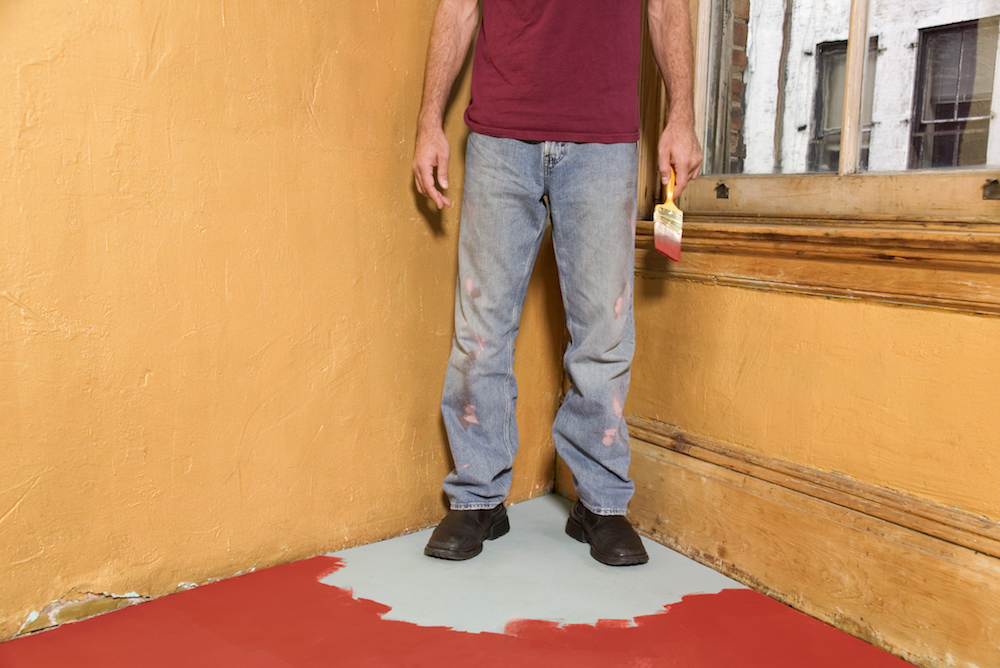Is Buying A Fixer-Upper Home Worth It?
Are you considering buying a fixer-upper home? In a seller’s market with high competition, broadening your net to include these types of properties can be a solid solution if you’re looking in a specific neighborhood or city.
Additionally, we all have ideas of what our dream home should look like and carry preferences when it comes to décor and interior design, which is why 72% of homeowners make home improvements chiefly to reflect their personal style.
But fixer-uppers aren’t always what they’re made out to be—there are several risks involved, especially for first-time homebuyers that don’t have the necessary capital saved up. To help you come to the right decision, here are a few factors to consider when buying a fixer-upper home.
Obstacles in a Fixer-Upper Home
One of the biggest obstacles in considering pursuing a fixer-upper home is whether or not any structural changes need to happen, such as taking down load-bearing walls, making additions, etc.
With these types of improvements, you may be looking at higher costs than originally quoted, unforeseen challenges—such as city ordinances or permits—and even the inability to live in the home while the work is being done. A project of this type often brings more stress and trouble than it’s worth, and it may be better to continue looking for a home that better fits your needs.
Additionally, if the work on your fixer-upper involves structural changes or exceeds $30,000 in cost, you will need to hire a HUD consultant to oversee and sign off on the work done by the contractor. The consultant acts as a sort of referee to ensure everything that’s being done meets the necessary requirements and is included in the FHA financing proposal.
Extracting Maximum Value
When buying a fixer-upper home, you want to be sure that the work you’re putting into it is supported in the value of the property. Some improvements, such as installing new carpet, will do nothing to affect the appraised value of your home. A new kitchen or bathroom, however, absolutely would. Therefore, you should be strategic in the types of repairs and renovations you’re looking to make on your fixer-upper to get as much boost in appraised value as possible.
Paying for a Fixer-Upper Home
If you’re thinking about moving forward with a fixer-upper project, it’s a good idea to figure out how you’re going to pay for it first and foremost. One method to steer clear of is paying for the repairs and renovations through credit cards or financing. A $10,000 loan through a credit card, for example, would amount to a payment of around $300 per month.
Instead, consider paying for repairs and renovations using loan programs designed specifically for those projects. Ross Mortgage offers the FHA 203(k) loan to help homebuyers make major improvements and repairs to their property.
If the $10,000 loan through a credit card cost $300 per month, it’s estimated that the same amount through a 203(k) program would cost just $49 per month, since the loan is baked into your overall mortgage payment.
FHA 203(k) Loan
The 203(k) loan allows you to make a down payment of just 3.5%, which is based on the purchase price of the home, plus the cost of repairs or improvements you’re looking to make. As part of this program, you would get a bid from a licensed contractor for any upgrades you want to make and include that cost in the purchase price of the home.
Once the loan goes through, an escrow account is established at closing, and as the contractor completes the work in your proposal, they take a draw on that escrow to get paid. While there is no limit to the amount of a 203(k) loan, the typical amount we see is $10-30K for light renovations and repairs.
You can also use a 203(k) loan for virtually any work on your home, inside and out. The sky is the limit when thinking about the improvements you want to make—the only thing you cannot use the loan money for is a pool or hot tub.
Knowing Your Options
In order to know whether buying a fixer-upper home—or any home, for that matter—is a good idea, and to get a sense of your options, it is recommended that you talk with a mortgage representative before moving forward in the process.
A loan officer will help give you a sense of your buying power and, through the pre-approval process, offer an idea of the types of loans you qualify for—which can potentially save you hundreds or thousands of dollars.
As one of the top FHA 203(k) lenders in Michigan, Ross Mortgage can help you make your dream home a reality. Have questions? Send us a message, and we’d be happy to provide you with an answer!










